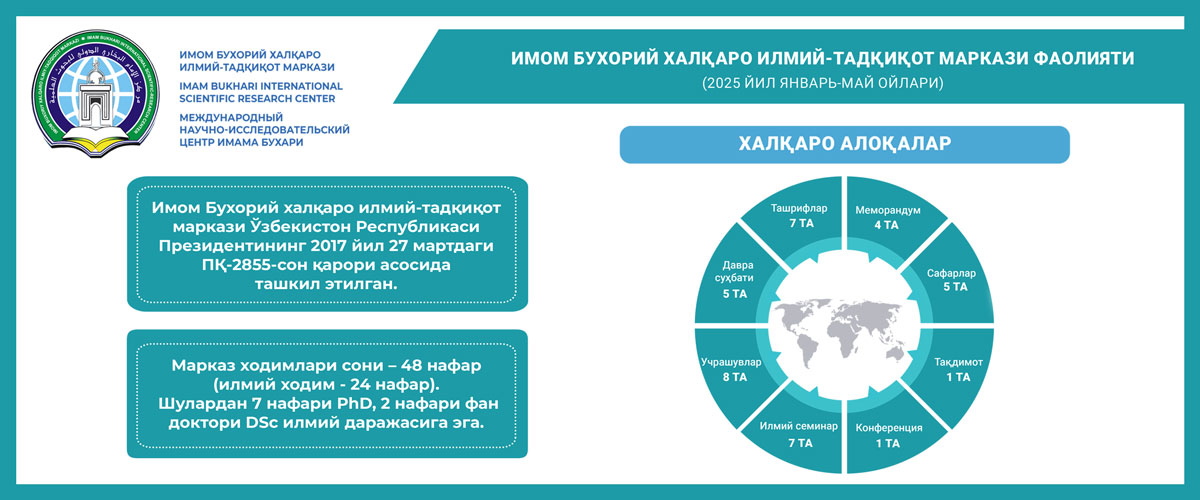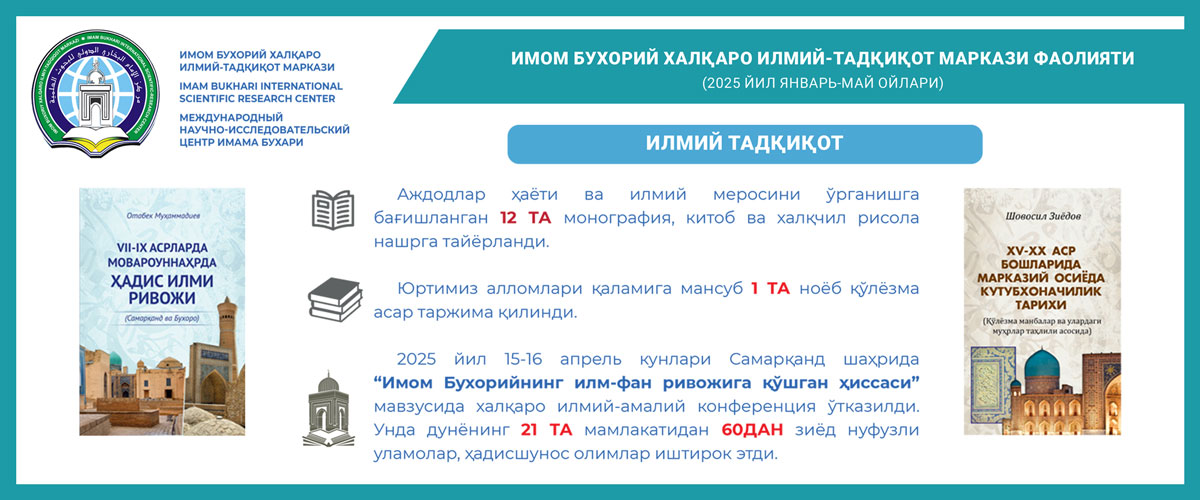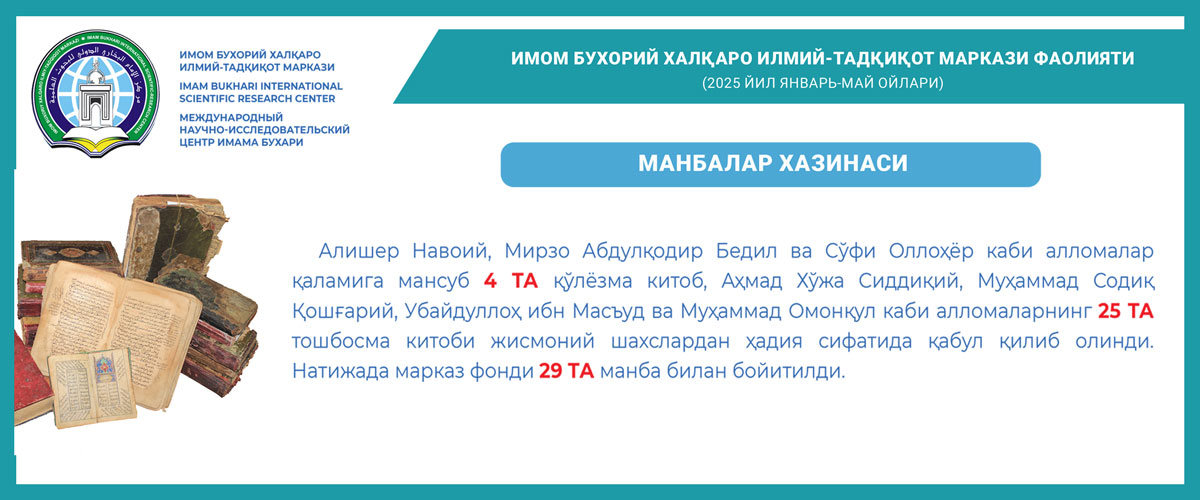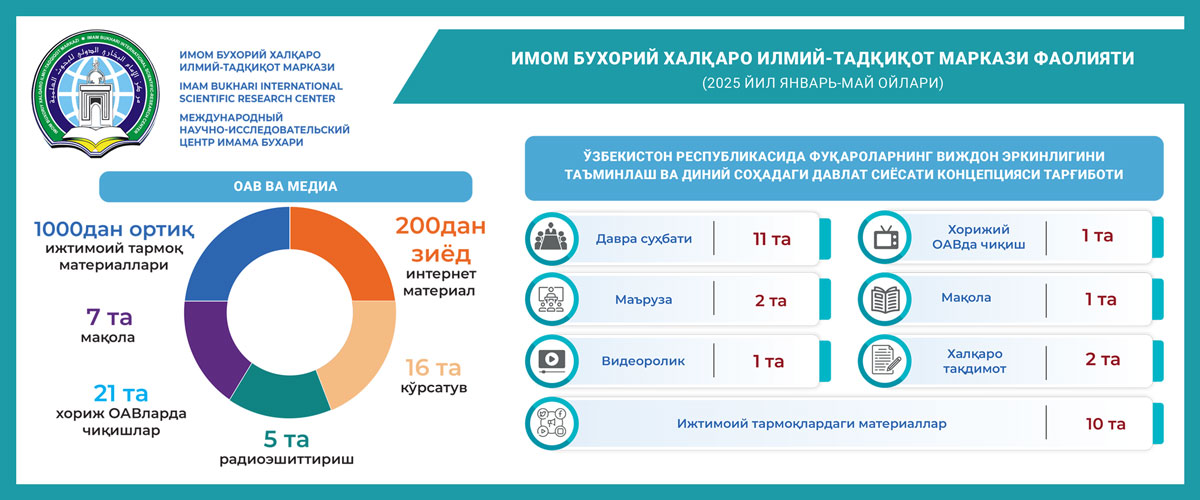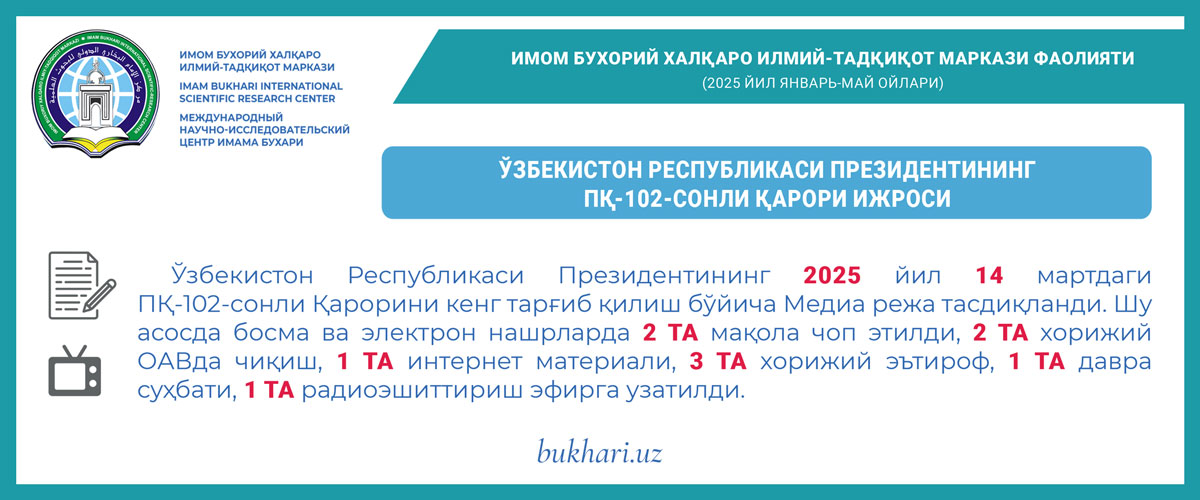Sufi Allayar is one of our great ancestors known among the people of Turkestan as a poet and literary man of Sufi trend. His Eminency’s name is Allayar, and his father’s name is Allahquli. The honourable title “Sufi” is given to him for his devout faith and his service in the fields of “shariah” and “tariqah” (order).
According to the information provided in “Risalai Aziza” (a commentary written on Sufi Allayar’s “Sabatu-l-ajizin”) by a Tartar historian Tajiddin Yalchiqul oghli, Sufi Allayar was born in 1644. However, according to the latest information provided by Sufi Allayar’s generations and Academician A. Valikhojayev, Professor B. Hasanov and Professor Sh. Sirajiddinov, Sufi Allayar was born in 1634. If to take into consideration the fact that in accord with the Islamic calendar, Sufi Allayar lived 90 years and in accord with the Christian calendar, he lived 87 years, it will be clear that Sufi Allayar’s date of birth was 1634.
Information concerning his personal life could rarely be found in his creative works. In accord with the information left in the book “Risalai Aziza”, the poet was born in “Minglar” village of Miyankul quarters of Samarkand and belonged to the Utarchi clan of the Chinese-Kipchak tribe. The poet himself often stresses the fact that he belonged to the Utarchi clan of Miyankul oasis:
Though Allayar from Utarchi is not a man of worth.
Don’t let him be put to the tortures of any of his foes,
or
Though Allayar from Utarchi is said to be also bad,
Yet men will stand in need of him, but it’ll happen after his death.
In these lines, Sufi Allayar points out his clan to which he belonged and stressed that this world is a temporary, i.e. not an eternal one.
We, a number of scholars and researchers studying the life and creative activity of Sufi Allayar, decided to visit his burial place and came to Katta Vakhshivar village of Altinsay district of Surkhandarya region. Having visited his tomb, we had a possibility of getting acquainted with the successors of Sufi Allayar. His son was Siddiq Muhammad and his son was Khojakalan and his son Eshankhan, and his sons were Khalilkhan, Umarkhan and Kakilkhan. And we had an interesting talk with their sons Karimatkhan and Muzaffarkhan.
Sufi Allayar was not only a great poet equalling with such representatives of the Uzbek poetry as Babarahim Mashrab and Turdi Faraghi but also a famous scholar. As is mentioned in his book “Muradu-l-arifin”, he left the following literary heritage:
- “Maslaku-l-muttaqin” (Conviction of the Believers);
- “Sabatu-l-ajizin” (Firmness of the Weak);
- “Makhzanu-l-mute’in” (The Treasure of the Obedient);
- “Muradu-l-arifin” (The Aim of the Wise);
- “Qiyamatnama” (A Book about the End of the World);
- “Mubarak hajj safari” (A Holy Pilgrimage) as well as a
number of lyrical poems.
The manuscripts of these works are preserved in most of the archives and in the personal libraries of his followers. The style and the form of these works mostly differ from each other.
Sufi Allayar’s literary works were published in different times and in different cities such as Tashkent, Bukhara, Kagan, Kazan and Istanbul. For instance, his book “Sabatu-l-ajizin” was published in Tashkent in 1882 and republished in 1884, 1905, 1908 and 1915. It was republished in Kagan in 1910 and in Kokand in 1890. This fact explains that Sufi Allayar’s works were very popular among the public.
Sufi Allayar’s literary creative works have played an important role in the history of our enlightenment activities. In old style schools studying such subjects as “Haftiyak”, “Chahor Kitab”, “Sufi Allayar” and “Hafiz” was compulsory. As our elderly remember, readings of Sufi Allayar’s literary heritage were often organized at the beginning of the 20th century in different parts of our republic.
Sufi Allayar received the primary education in his village Utarchi and at the age of 10-12, he came to study to one of the madrasahs of Holy Bukhara. He was educated under the auspices of Juybari sheikhs who had great respect and honour among the people of Bukhara Emirates. He had good education in religious and secular sciences. As he acknowledged, he had been taught law by two of his masters: Khoja Mumin and Muhammad Ghazni. He appreciated his teachers saying: “Though I was very little educated and had little knowledge in the field of law, my masters were highly educated and mature specialists” and wished them the honour and respect given by Allah to such great people as Junayd and Ghazzali.
In the preface of his book, “Maslaku-l-muttaqin” a poet and scholar Sufi Allayar stressed that he was keen on the Naqshbandiya order in religion. As he recognized, a man who recommended him to follow the teachings of Sufism and taught him the secrets of this trend was his pir (spiritual leader) Khoja Navruz, a scholar from Shakhrisabz. Then, later he became a disciple of Sheikh Habibullah of the Naqshbandiya order and under the auspices of this man Sufi Allayar reached the level of a well-known sheikh.
Radical positive changes in Sufi Allayar’s outlook took place after his meeting with Sheikh Navruz, who was always burning with love and devotion to Allah. The same thing can be said about his meeting with a famous sheikh of” Sufism Afaq Khoja. He had a great influence on the spiritual and moral life of Sufi Allayar.
Sufi Allayar spent his greater part of life in “Sufi guzar” of Kattakurgan town. Later he moved to Chanqaymish site of the Jam mountain ranges and Kabadiyan (1710). He spent the last days of his life in the Vakhshivar village of Dehnav (modern Altinsay) district of Surkhandarya region.
 Imom Buxoriy xalqaro ilmiy-tadqiqot markazi bukhari.uz
Imom Buxoriy xalqaro ilmiy-tadqiqot markazi bukhari.uz
